On 25 April 2018, United for Efficiency launched work with Caribbean countries at meetings in their capitals, aiming to accelerate the transformation of the islands’ cooling market. This will allow for energy-efficient and climate-friendly air conditioners and refrigerators to enter the countries’ markets, saving customers $222M in their energy bills.
 The Caribbean Cooling Initiative includes five action areas: an energy efficiency market assessment, development of a national cooling strategy and energy performance standards, piloting a financial mechanism to support adoption of high-performance products, and training of government officials to adopt and implement the recommended policies.
The Caribbean Cooling Initiative includes five action areas: an energy efficiency market assessment, development of a national cooling strategy and energy performance standards, piloting a financial mechanism to support adoption of high-performance products, and training of government officials to adopt and implement the recommended policies.
“The Ministry of Environment and Drainage is pleased to support the Caribbean Cooling Initiative. The initiative aligns with Barbados’ aims to phase-down the use of hydrofluorocarbons under the Kigali Amendment to the Montreal Protocol, while improving the energy efficiency of appliances, which is a priority under the National Sustainable Energy Policy,” said Shontelle Wellington, National Ozone Officer for Barbados at the opening of the Barbados project.
Air conditioners and refrigerators provide essential services in the year-round tropical climate of the Caribbean. Growing local populations and the tourism that helps drive many economies are demanding ever more cooling products.
The energy performance of the cooling products currently available is largely unregulated. Inefficient models are common and up to 80 per cent of the electricity is wasted.
With high electricity prices and reliance on imported fossil fuels, this waste has big implications: residents and businesses suffer from expensive power bills, utilities struggle to meet peak energy demand, governments are saddled with increasing dependence on imported energy (with prices that fluctuate), and pollution and greenhouse gas emissions are exacerbated.
The Caribbean Cooling Initiative will help the countries to tackle this challenge and brings the Caribbean countries significant savings. If the participating countries were to adopt model minimum energy performance standards for air conditioners and refrigerators, the total annual saving on utility bills in 2030 could be $222M.
“Barbados has demonstrated strong leadership in transitioning to more sustainable products, such as with the widespread adoption of solar water heaters. Transitioning to more energy-efficient and climate-friendly refrigerants and air conditioners presents an excellent opportunity for this dynamic island nation,” said Brian Holuj, United for Efficiency Coordinator for cooling activities.
The Caribbean countries have been proactive in pursuing a variety of energy and environment goals over the years. Their governments and tourism industries have expressed a strong interest in transforming their markets for cooling products.
 “We have encouraged our industry leaders and trainers to be aware of market changes which continue to impact our industry daily us. We will do our part as an industry and wish that from this initiative conceptualisation we can support and make a significant contribution to this project,” said Edmund St. Mark, President of the Saint Lucia National Air-Conditioning and Refrigeration Association at the opening of the Saint Lucia project.
“We have encouraged our industry leaders and trainers to be aware of market changes which continue to impact our industry daily us. We will do our part as an industry and wish that from this initiative conceptualisation we can support and make a significant contribution to this project,” said Edmund St. Mark, President of the Saint Lucia National Air-Conditioning and Refrigeration Association at the opening of the Saint Lucia project.
The Caribbean Cooling Initiative is funded by the philanthropic organisation Kigali Cooling Efficiency Program, and will be carried out in collaboration with the Caribbean countries’ Environment and Tourism Ministries and United for Efficiency Partners.
***
For more information:
Contact Caribbean Cooling Initiative Coordinator Loreto Duffy Mayers at loreto.duffy-mayers@un.org
Download the project concept note (.pdf)


Leave a Reply